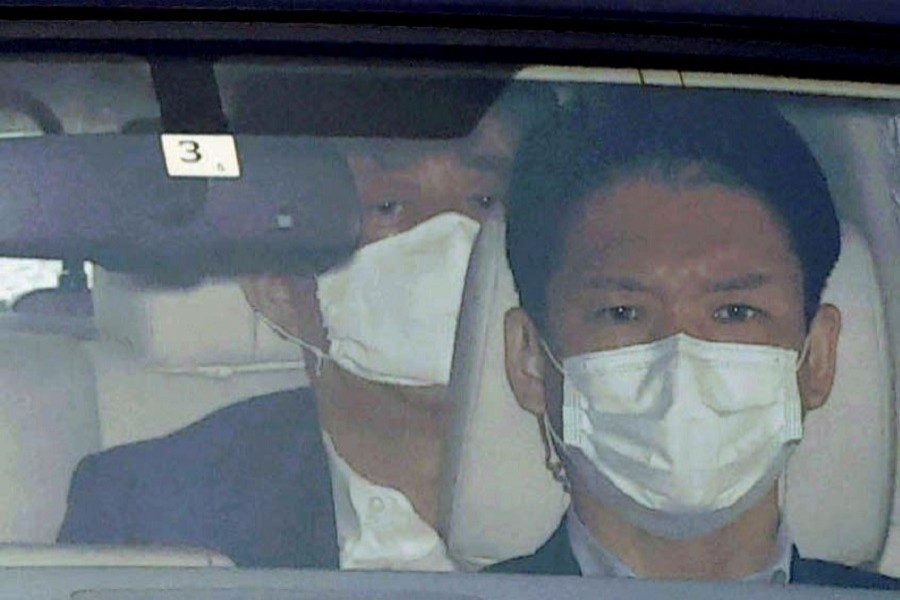Japanese Prime Minister Shinzo Abe visited a Tokyo hospital on Monday for a second time within days, stoking concern about his ability to stay on as leader due to health issues and fatigue from tackling the coronavirus pandemic.
Government spokesman Yoshihide Suga said Abe was at the hospital for the follow-up of a medical check a week ago when his examination lasted 7-1/2 hours, fuelling worries about his health.
But major broadcaster Nippon TV said Abe was being treated for a chronic illness rather than a check-up, citing multiple unidentified government and ruling party sources. It added that Abe was scheduled to go to his office in the afternoon.
“I was informed that he’s getting an additional exam after last week’s exam,” Suga, who is also the chief cabinet secretary and is seen as one of the main contenders for Abe’s job, told a regular news conference.
“The premier himself said the other day that he wanted to return to work.”
Abe is Japan’s longest-serving prime minister, surpassing on Monday a record for longest consecutive tenure as premier that is now half a century old and set by his great-uncle Eisaku Sato.
That achievement added to speculation that Abe could resign after reaching the milestone.
In office since 2012 in his second stint as prime minister, Abe had resigned from his first term in 2007 because of struggles with ulcerative colitis, which he now keeps in check with medicine that was not previously available.
The prime minister’s office did not give a detailed explanation of his hospital visits, but close aide Health Minister Katsunobu Kato said last week’s visit was a regular check-up and he was “not at all” worried about Abe’s health.
Abe has suffered a slide in public opinion polls to one of the lowest levels since he took power, fuelled by what respondents see as his haphazard handling of the coronavirus and a string of scandals.
Japanese media have speculated about Abe’s health this month, including detailed reports on his walking speed. Weekly magazine Flash said Abe had vomited blood at his office on July 06. Reuters was unable to verify the widely cited report, which was denied by government officials.
Abe gets a regular check-up twice a year, with his most recent on June 13, Kyodo news agency said, adding that last week’s visit was a follow-up to a June check-up, citing a hospital source.
If Abe is incapacitated, Deputy Prime Minister Taro Aso, who doubles as finance minister, will take over temporarily as acting prime minister.
If Abe says he has decided to resign, he will stay on until formally replaced, which requires a ruling Liberal Democratic Party presidential election, followed by the winner’s formal election in parliament.


